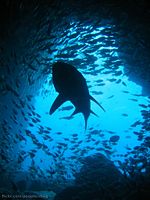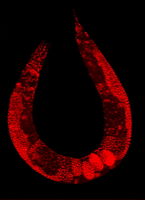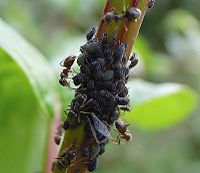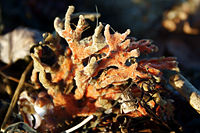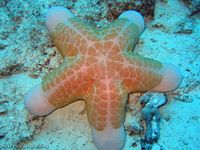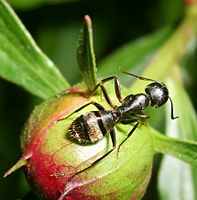Animal/Gallery: Difference between revisions
< Animal
Jump to navigation
Jump to search
imported>Joshua Choi mNo edit summary |
imported>Joshua Choi No edit summary |
||
| Line 10: | Line 10: | ||
|Red beard sponge.jpg|This [[red beard sponge]] (Microciona prolifera) washed up onshore. Sponges attach to the ocean floor and passively [[filter feeding|filter feed]] on [[plankton]] that pass through them. | |Red beard sponge.jpg|This [[red beard sponge]] (Microciona prolifera) washed up onshore. Sponges attach to the ocean floor and passively [[filter feeding|filter feed]] on [[plankton]] that pass through them. | ||
|Granulated sea star.jpg|This granulated [[sea star]] (''[[Choriaster granulatus]]'') is just one of the many animals that populate the [[Great Barrier Reef]]. | |Granulated sea star.jpg|This granulated [[sea star]] (''[[Choriaster granulatus]]'') is just one of the many animals that populate the [[Great Barrier Reef]]. | ||
|Ant on peony.jpg|One of the many thousands of [[ant]] [[species]] crawls on a [[peony]] [[fruit]]. Ants are essential in redistributing resources and aerating the [[soil]] in all seven [[continent]]s except [[Antarctica]]. | |||
}} | }} | ||
Revision as of 20:54, 6 April 2009
| The biodiversity of the animals is mind-boggling. | |||||||||||||||||||||||||||||
| |||||||||||||||||||||||||||||
